"Dinacharya" refers to the daily routine recommended by Ayurveda, the traditional system of medicine in India. It emphasizes aligning your daily activities with the natural cycles of the day to promote overall health and well-being. Incorporating herbal tea into your Dinacharya is also a wonderful way to promote overall well-being.
Here is a suggested Dinacharya or daily routine that can be adopted by any individual, according to Ayurveda:
Morning Routine:
Wake up Early:
- Ideally, rise before sunrise during the "Brahma Muhurta," which is the auspicious time for spiritual practices.
- As per Ayurveda, rising before sunrise helps keep all three Doshas (Vata, Pitta and Kapha) in their balanced state.
- One can also begin the day with the freshness of various herbal teas like Pravek-T.
Oral Care:
- Begin the day with oral hygiene practices like tongue cleaning, oil pulling and brushing with herbal toothpaste like Pravek Vajradanti, which is a wonderful combination of herbs, good for oral hygiene and dental health as well.
Evacuation of Bowels:
- Attend the natural call of nature, to promote healthy bowel movements.
Nasal Cleansing (Nasya):
- Put a drop of warm sesame oil or cow ghee into each nostril for nasal cleansing. This helps balance the Kapha Dosha of your body.
Oil Massage (Abhyanga):
- Perform self-massage with warm sesame oil or a suitable Ayurvedic oil, paying attention to joints and skin.
- Oiling is not recommended or rather prohibited in case of inflammation in any area of the body.
Bath:
- Take a warm bath or shower to cleanse the body. Remember warm water should only be used for below the neck area. For the upper neck area i.e. face and head, one should always use normal water for bathing to keep the Kapha Dosha into a balanced state.
Morning & Mid-day Meals:
- As per Ayurvedic principles, is it suggested to consume a well-balanced, nutritious meal that includes all six tastes: sweet, sour, salty, pungent, bitter and astringent.
- Always go for a healthy and heavy breakfast because it is the time when digestion is strongest. Lunch can be lighter and dinner should be the lightest to keep the digestion in a healthy state.
- One can get the best combination of taste with health in breakfast by replacing normal milk tea with any Ayurvedic tea.
Afternoon Rest:
- Take a short rest or break for around 40-45 minutes during the afternoon after your meal to rejuvenate.
- Pregnant females, old people above 60 years or anyone who is suffering from any disease can take a longer nap or sleep during the afternoon for approximately 1-2 hours.
Evening Routine:
Exercise or Yoga:
- Engage in gentle exercise, yoga or pranayama to promote flexibility and overall well-being.
- Some people also have the habit of evening tea. One can get the evening refreshment with any Ayurvedic tea like Pravek-T which is the perfect combination of refreshing and rejuvenating herbs.
Dinner:
- Have a light, easily digestible dinner at least two to three hours before bedtime.
Relaxation:
- Spend time in relaxing activities such as reading, listening to soothing music, refreshment drinks like herbal tea or spending quality time with family.
Night Routine (Ratricharya):
Just like Dincharya, Ayurveda also talks about Ratricharya. Some of its routines are:
Digital Detox:
- Avoid electronic devices at least an hour before bedtime to promote better sleep.
- The harmful rays, which are generally released from digital gadgets are very dangerous for both physical and mental health.
- So to get the best health one can help oneself by various methods like a balanced diet, stress free lifestyle or even some beneficial herbs like Kesar, Ashwagandha and Giloy.
- Pravek Ashwagandha capsules have given wonderful and effective results to support both mental and physical health more importantly to detox oneself.
Meditation or Prayers:
- Practice meditation or prayers to calm the mind and promote spiritual well-being.
- Some herbs when consumed especially in tablet or capsule form like Ashwagandha capsules also provide mental peace and help calm the mind naturally.
Sleep:
- Aim to sleep by 10:00 p.m. to ensure a restful night's sleep during the Pitta-dominant time.
- Pravek Ashwagandha capsules are always recommended if anyone faces any sleep issues due to any major reason majorly as stress.
Additional Considerations:
Menstrual Health:
- During menstruation, adjust the routine to include more rest and gentle activities.
- Follow practices that support menstrual health, such as maintaining warmth and avoiding strenuous exercises.
- Pravek Anae and Suvaran Kalp can be consumed by women suffering from any menstrual issue or discomfort, as per the doctor’s advice.
Seasonal Adjustments:
- Adjust the routine according to the seasons to balance the Doshas and promote overall health.
- Consuming seasonal fruits and vegetables is always helpful and healthy.
Hydration:
- Stay hydrated throughout the day with lukewarm water or herbal teas. These can be the best ways to nourish one’s mind and body naturally.
- With the goodness of ginger, Tulsi and turmeric, Pravek-T is one of the best formulations of Pravek Kalp to provide nourishment, improve metabolism, enhance digestion and boost one’s immunity.
Conclusion:
It is important to note that Ayurvedic practices are highly individualized and the Dinacharya may need to be tailored based on an individual's constitution (Prakriti) and any imbalances (Vikruti). It is important to note that individual variations exist and what works for one person may not work for another. Ayurvedic dietary guidelines provide a framework, but the specific recommendations should be tailored to individual needs with the guidance of a qualified Ayurvedic practitioner. Consulting with an Ayurvedic practitioner can provide personalized guidance and recommendations based on individual health needs and goals.
Authored by:
Dr. Nikita Chaudhary
BAMS, MD (Ayu)

